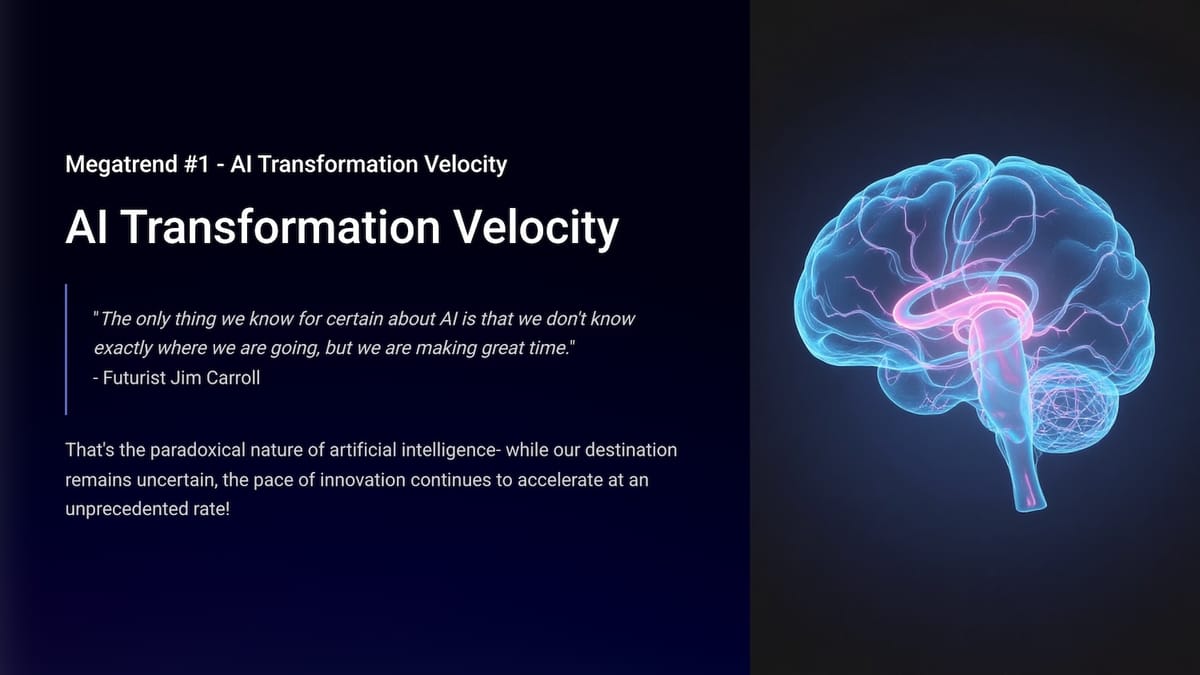"The only thing we know for certain about Al is that we don't know exactly where we are going, but we are making great time." - Futurist Jim Carroll
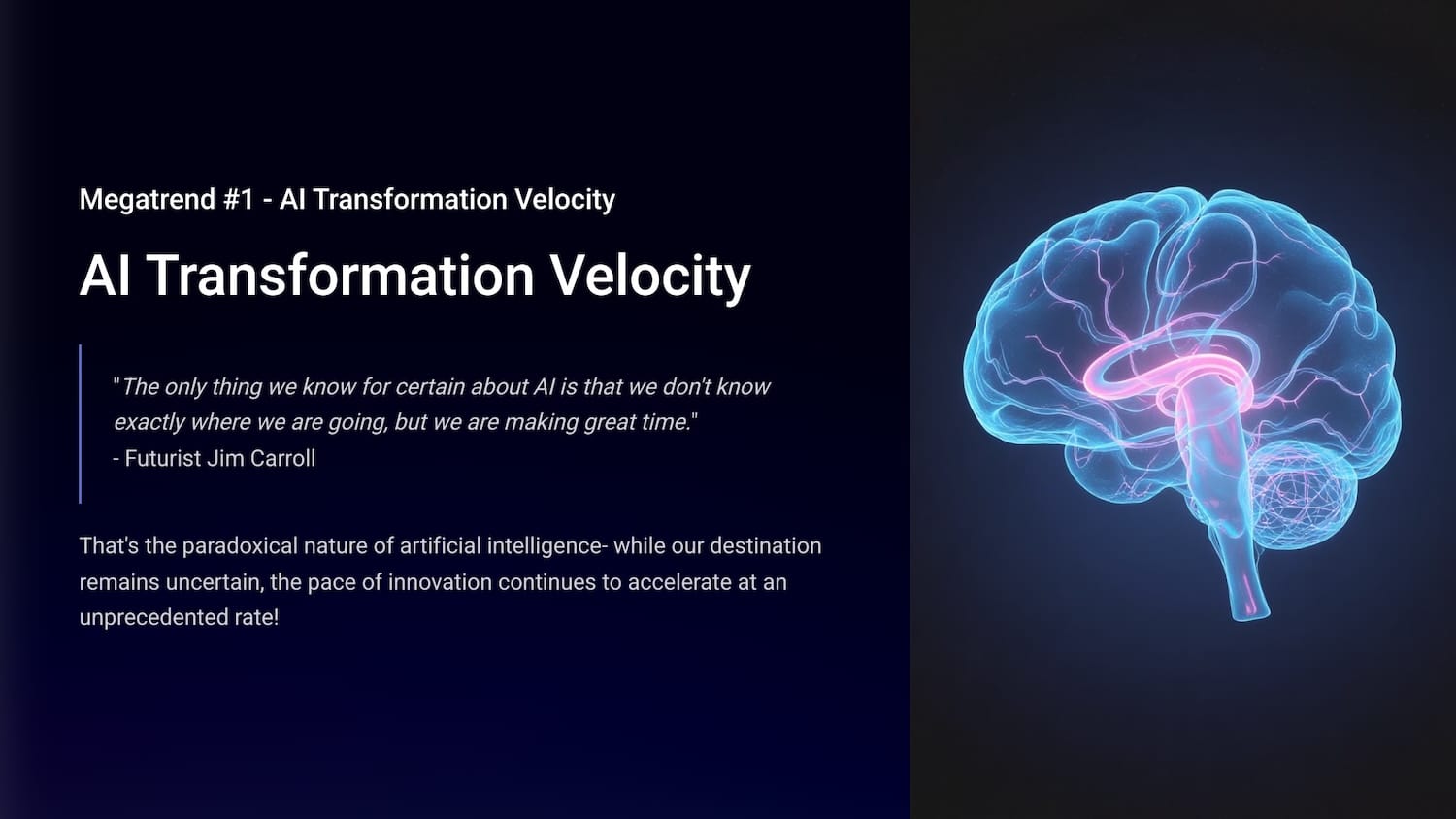
My book Dancing in the Rain features a list of 30 Megatrends. Some folks asked me to expand on them, so I'm starting a new series today.
The first one, AI, obviously doesn't need a lot of explanation.
It's big.
It's fast.
It's not going away.
It's going to impact your life one way or the other.
It's going to have as profound an impact as the Internet has had, both good and bad.
People will endlessly debate about where it will take us.
Some are excited, many are terrified, many are both.
And the sophistication of what we can do continues to accelerate at a ridiculous rate.
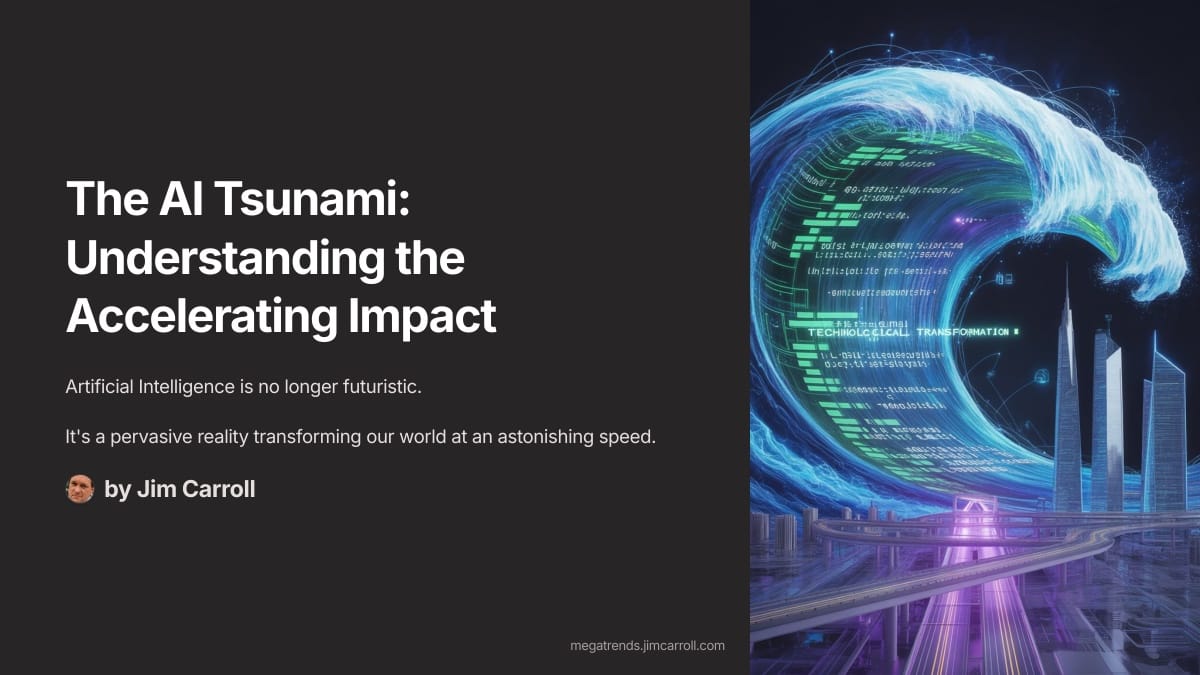
As do the risks and the downside.
Ok, so with that out of the way, here's a bit more to think about. First, AI is not some weird futuristic concept - it's a pervasive reality that has already been rapidly transforming our world. I took the liberty of taking one of my recent AI keynotes and had it summarized by Google Gemini. I then fed this to gamma.app - and Megatrends#1 of how it summarized my work.
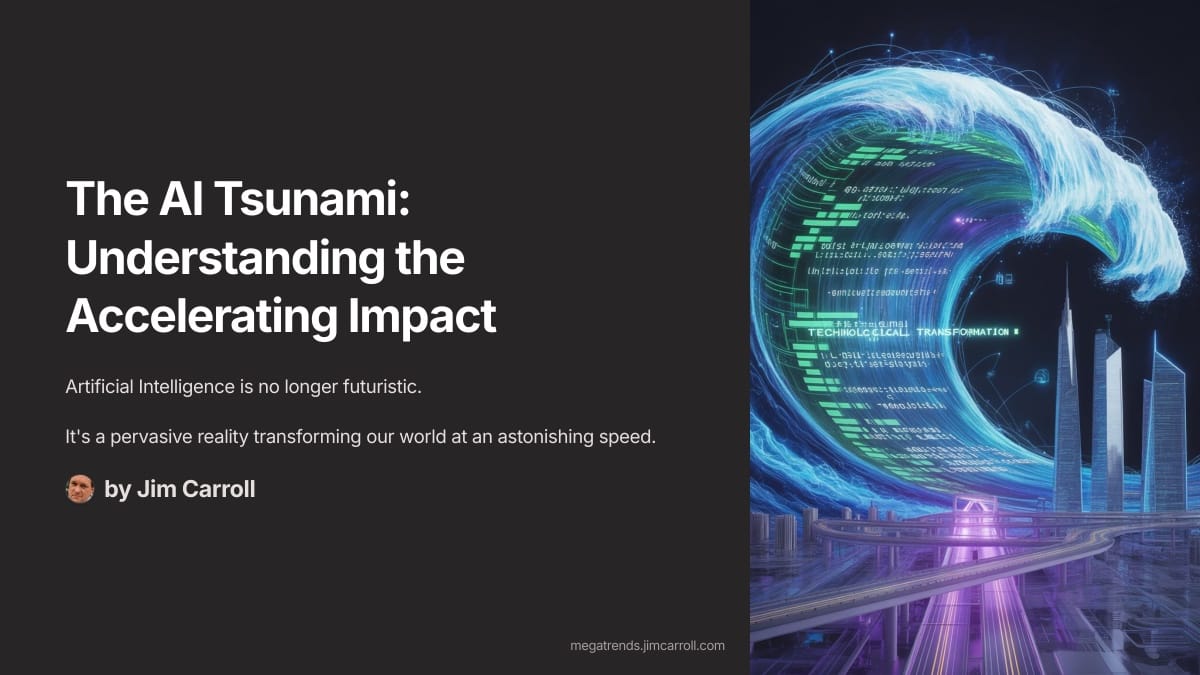
The first thing to think about is that from the seemingly mundane to the profoundly complex, AI is already deeply embedded in our daily lives. Take a look around your world - you have::
- Wearable fitness trackers analyzing your exercise patterns
- Chatbots that instantly answer your questions
- Shopping sites recommending products based on your past purchases
- Security cameras recognizing unfamiliar faces or objects
- Music apps creating personalized playlist recommendations
- Email services categorize messages and filter spam
And that's just the tip of the iceberg. AI already powers everything around you, from autonomous vehicles and computer vision to natural language processing and virtual assistants. Algorithms are the unseen force behind Fitbits, Apple Health, Predictive Insurance, and just about everything else. In some industries - healthcare, for example - the 'algorithm' does a better job of interpreting critical data than humans do.
But that's not the key thing to think about - it's how quickly all of this is moving. It's the acceleration of everything having to do with AI that we need to think about. The explosion of AI into public consciousness isn't truly sudden. It's the result of several exponential trends converging:
- Continuation of Moore's Law: The number of transistors on microchips doubles every two years, leading to ever-increasing processing power.
- Collapsing Training Costs: The cost to train AI systems has plummeted dramatically. For example, the cost to train an AI system for image recognition dropped from $112.64 in 2017 to $4.50 in 2021. It's even less today.
- The explosion of Available Data: The amount of data created worldwide is projected to grow from 47 zettabytes in 2020 to 2,142 zettabytes by 2035. This massive influx of data provides the fuel for AI training.
- Adoption rate. This acceleration means that what once took years or decades to develop is now happening in months or even days. ChatGPT, for example, reached 1 million users in just 5 days, compared to Netflix's 3.5 years.
Then there is what is happening with development itself - it's a massively global, collaborative research farm:
- Acceleration of Research: The number of AI and machine learning papers is growing exponentially, demonstrating a rapid increase in innovation and discovery within the field.
- Collaborative, Open Development: The AI community is actively building the future together through open development, fostering rapid progress.
- Accelerated Building Block Architecture: The development of AI models is benefiting from an accelerated building block architecture, allowing for faster and more efficient creation of complex systems.
So where does it take us? To endless debate, for one thing.
But I'm a fan of its knowledge and skills potential. Using it on my own, I've become convinced AI can significantly augment our capabilities -we can automate those tedious tasks and get rapid access to information. I'll often explain on stages that AI facilitates a "knowledge acceleration journey" by offering "just-in-time knowledge" and insights, allowing for faster learning and more informed decision-making in various fields. This means that critical information can be accessed and applied precisely when needed.
Not only that, but AI is poised to fundamentally reshape how we interact with technology and information, leading to significant shifts in workflows, educational approaches, transportation systems, healthcare delivery, and communication methods over the long term. This transformation will be gradual and will require adaptation.
As we all know, the rise of AI presents both existential threats and transformative opportunities.
- Job Displacement: While new jobs will be created, AI will also lead to the disappearance or massive change to existing careers.
- Rapid Knowledge Obsolescence: The speed of change means that skills can become outdated quickly.
- New Security Vulnerabilities: AI introduces new attack vectors, AI-generated attack software, and the risk of AI model vulnerabilities. Privacy and security concerns are paramount, as seen with AI potentially copying private messages.
- False Information and Bias: AI models have a "tendency to confidently deliver incorrect information", highlighting issues of bias, errors, and reliability.
- Complexity and Lack of Planning: Few organizations have a plan for AI, and the complexity of AI systems outpaces the skills necessary to assess risk.
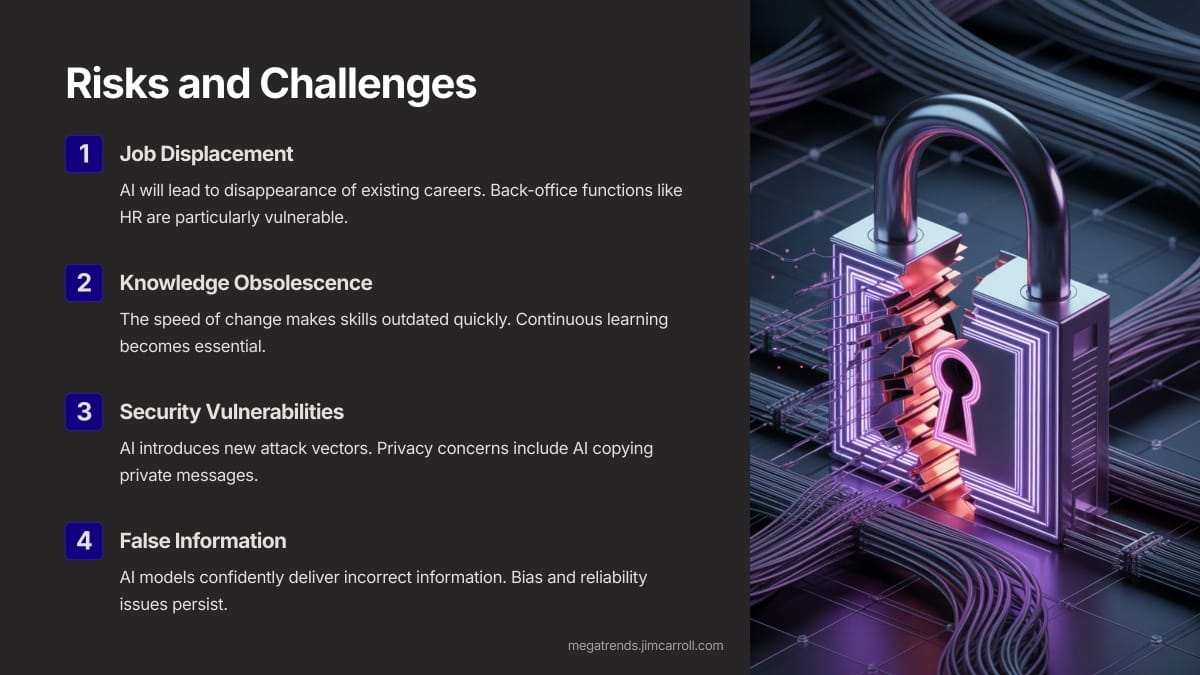
So where are we right now? I think all of us are on a journey from "little experience" to "experimentation and understanding" to "advanced expertise" with AI. The key is to:
- Invest in Experiential Capital: This is as important as financial capital, encouraging hands-on learning and adaptation.
- Master AI: You won't lose your job to an AI, but you might lose your job to someone using an AI!
- Become Your Own Futurist: Keep an eye on the future and understand the accelerating trends.
- Think BIG, Start Small, Scale Fast: This mantra encapsulates the agile approach needed to navigate the AI era.
Bill Gates has said: "The development of AI is as fundamental as the creation of the microprocessor, the personal computer, the internet, and the mobile phone."
It promises to change everything, and if we can adapt, learn, and responsibly innovate, THAT will determine our future in this rapidly evolving landscape.
As I said, we don't know where we are going but we sure are making great time!
Futurist Jim Carroll has been working hard to integrate AI into everything he does, knowing that it is here, it's not going to go away and will impact him in both a positive and negative way.

